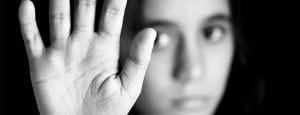Here at Patient Worthy, we’ve written quite a bit about Narcolepsy.
 However, we can’t help but think that taking a step back to answer some basic questions about the disease is the best way for us to stay on top of our game and spread new information to keep everyone informed, especially those who have been newly diagnosed with the disease.
However, we can’t help but think that taking a step back to answer some basic questions about the disease is the best way for us to stay on top of our game and spread new information to keep everyone informed, especially those who have been newly diagnosed with the disease.
There are several resources out there, one of which is this very detailed and helpful brochure provided by the Narcolepsy Network for the newly diagnosed.
Read on to see the answers to 7 basic questions we would want answered if we were just diagnosed with Narcolepsy:
-
What is Narcolepsy?
According to the National Institute of Neurological Disorders and Stroke, “Narcolepsy is a chronic neurological disorder caused by the brain’s inability to regulate sleep-wake cycles normally“. One of the main symptoms associated with narcolepsy is excessive daytime sleepiness. Three other major symptoms frequently characterize narcolepsy: cataplexy, or the sudden loss of voluntary muscle tone; vivid hallucinations during sleep onset or upon awakening; and brief episodes of total paralysis at the beginning or end of sleep.

-
How many people are affected by Narcolepsy?
According to the Narcolepsy Network’s FAQ page, “Incidence of Narcolepsy can vary by ethnic group. The highest occurrence is found among the Japanese at one in about 600 and the lowest rate is among Israeli Jews at one in about 500,000.” Narcolepsy affects both men and women equally and about 1 in 3,000 Americans. Many narcoleptics are incorrectly diagnosed with depression, psychosis, or seizures.
-
What is the prognosis?
The prognosis for narcolepsy is not as bleak as with other rare diseases, “With proper management and treatment, patients with narcolepsy usually lead meaningful and productive personal and professional lives. If left untreated, narcolepsy may be psycho-socially devastating“. Whatever the age of onset, patients find that the symptoms tend to get worse over the two to three decades after the first symptoms appear. Many older patients find that some daytime symptoms decrease in severity after age 60.
-
Are there any treatment options?
The Narcolepsy Network also has a very useful PDF document outlining FDA approved medications for Narcolepsy. Among some of the newer medications are:
always consult your healthcare provider before taking any medication as each or all of these may not be right for you.
-
What are some Narcolepsy resources or communities I can turn to for guidance (aside from Patient Worthy’s AWESOME site)?
-
I’m active on social media, are there any associated social media hashtags or social media influences specific to Narcolepsy?
Social media can be an incredible resource to find others going through the same situation as you. Symplur has made it simpler (see what I did there?) to find where chronic illness and rare disease conversations are taking place in the socialverse . Click here to find where the Narcolepsy conversation’s are taking place. Who knows, maybe you’ll find yourself leading the conversation soon enough!
-
I carry my smart phone everywhere I go, are there any apps designed specifically to help those with Narcolepsy?
- For Doctors and those who think they may have Narcolepsy- Narcolepsy Screener
- For Patients and the Newly Diagnosed – Narcolepsy Advocacy Center by Julie Flygare via the Mobile Health Library App… Follow the instructions outlined here to reach the app.
-
BONUS!!!!! Click here to find a Narcolepsy support group near you (not every state has one, check back soon for an update)




